Just leave that job which gives you stress and anxiety. I think job is something where we work at the cost of our time, our mind, our presence in order to get salary. Employer should become an employee' choice.
Why Being Grateful for Work Can Lead to More Stress
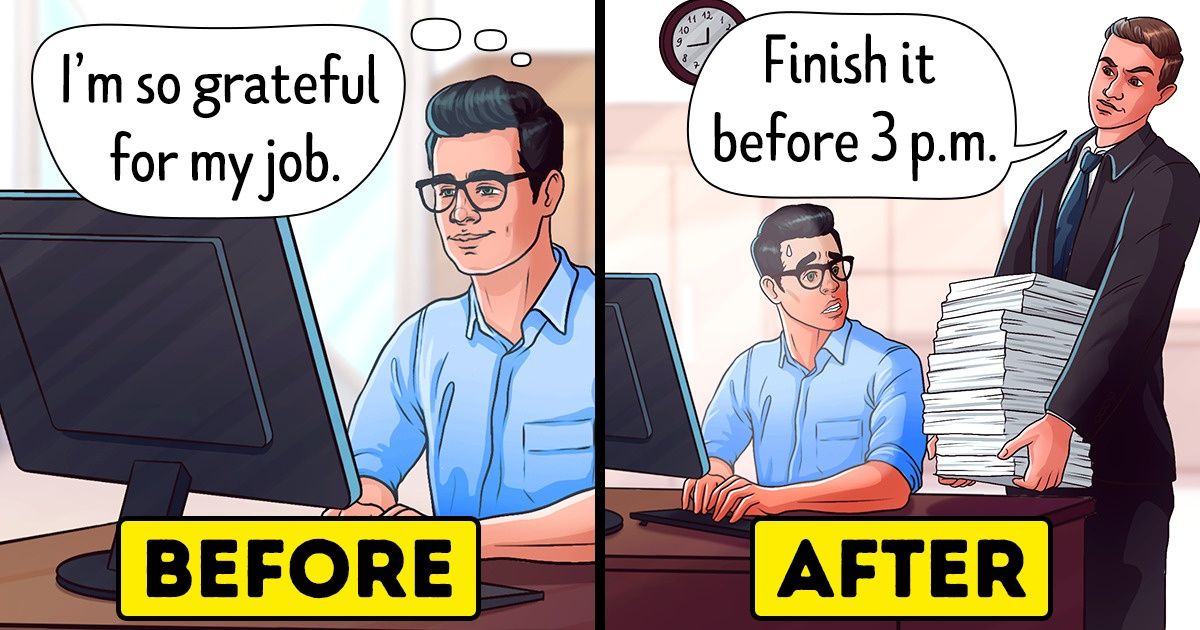
Despite the fact that scientists associate happiness with saying thanks, sometimes gratefulness has drawbacks. Although gratitude for your job can be genuine and authentic, oftentimes it’s misplaced and is a result of the pressure to be “grateful” for employment. And this unearned, obliged gratitude can backfire on us.
Bright Side went on to investigate this issue only to find out that work-related gratitude has downsides, affecting your everyday life.
It makes you more willing to tolerate things that make you unhappy.
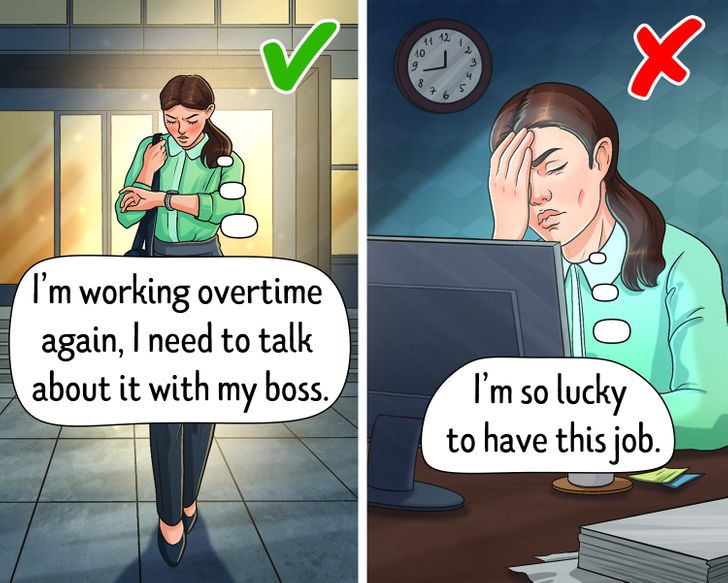
Many people have an example from their childhood of being forced to feel thankful for something they don’t like. You didn’t want to eat your greens or whatever else, and your mom or dad would say, “Be grateful you have food at all!” We were taught to appreciate what we have and not whine about it.
Then we grow up and continue with this way of thinking as adults at work, pressuring ourselves to express gratitude — sometimes for the bare minimum. “It could be worse,” you may say to yourself in a difficult situation. But if you’re too busy pushing yourself to be thankful for your job, you might not realize that it’s actually thankless and that it makes you feel stuck.
It’s used to mask negative emotions.
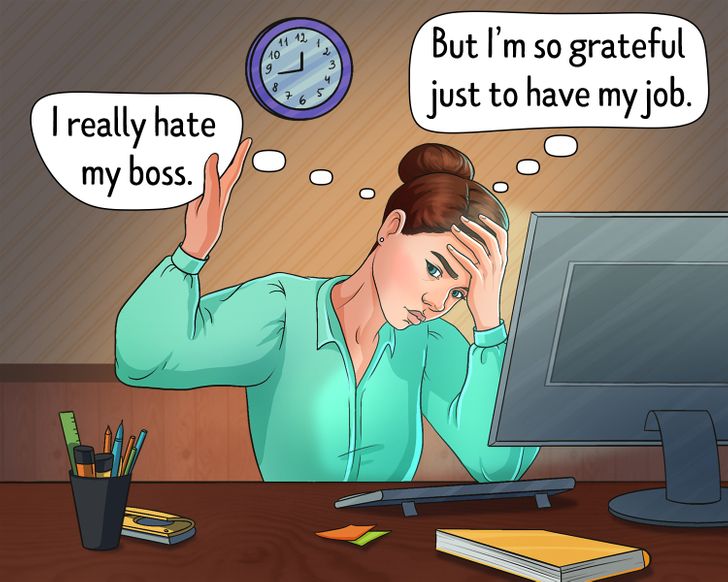
When you’re forcing yourself to be grateful, you might begin using a “gratitude bypassing” tactic to avoid and suppress negative feelings. You tell yourself that you feel grateful when you’re actually feeling sad, stressed, anxious, or tired. And you could be missing out on the red flags that should be alarming you that something is wrong.
Obviously, this isn’t healthy, and it won’t allow you to see the positive effects of genuine gratitude while experiencing the negatives of emotional avoidance. Eventually, the negative feelings will catch up — likely with more intensity. By substituting these feelings with forced thankfulness, you’re also overlooking how they could motivate you to improve your situation.
It makes you more vulnerable to your boss.
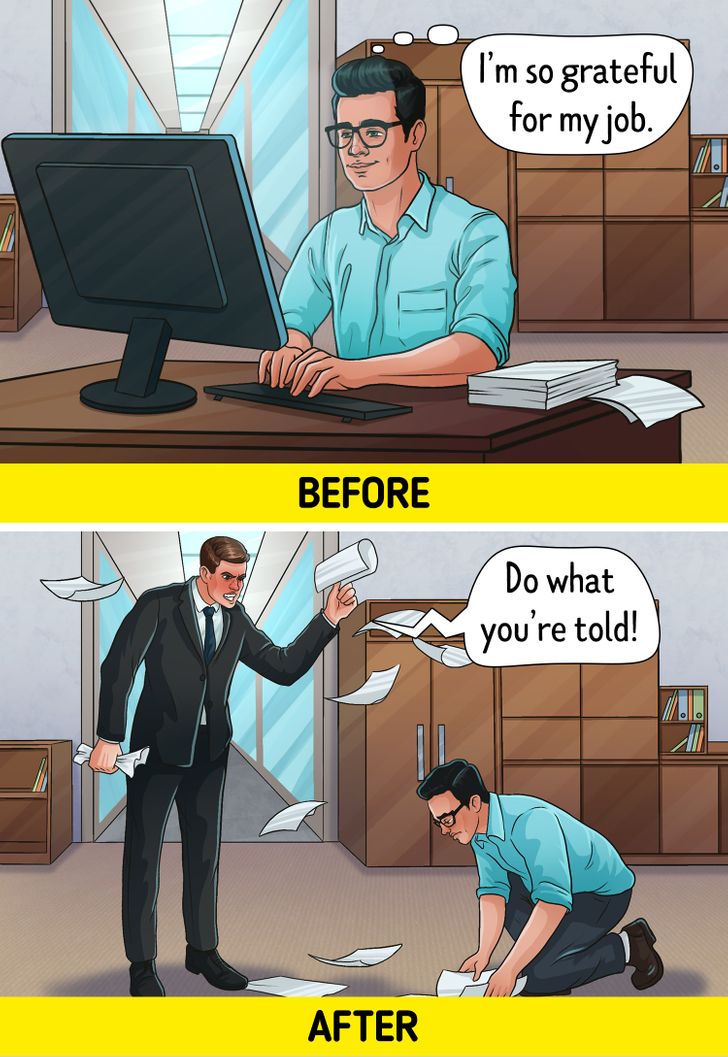
Misplaced gratitude can be easily exploited by employers, either to manipulate workers into overworking or to “cut expenses,” using it as an excuse to lay you off or pay you less. They know their employees won’t complain or quit because they fear they won’t find new work. When people are thankful for the mere fact of having a job, this may dissuade them from defending their actual rights.
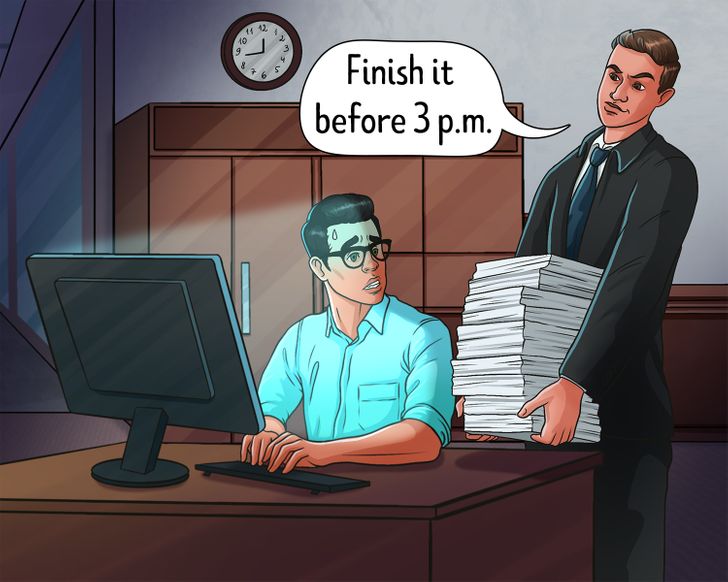
This all leads to overworking, increasing stress, and dissatisfaction with your job and your life. To avoid it, remember that you don’t owe anything to your employer: you shouldn’t be thankful just for “letting you” work for them.
What job do you have? Do you like it or would you like to change something about it?
Comments
Related Reads
I Will Never Take Care of My Aging Parents Until They Follow My One Golden Rule
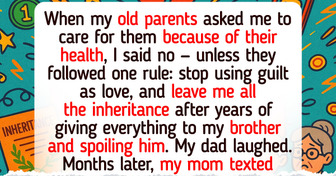
I Refuse to Save the Father Who Abandoned Me—Now Everyone Calls Me Heartless
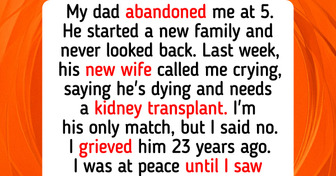
15 People Who Stay Kind Even When Their World Is Falling Apart

14 Quite Acts of Kindness That Changed Someone’s Life Forever

Our “Romantic” Vacation Was Hijacked by My Wife’s Family—And It Forced Us to Reevaluate Our Relationship

My Manager Tried to Destroy My Career but a Work Argument Showed Them the Truth

14 Dates That Started Like Movies but Ended Like Sitcoms

I Refused to Train My New Colleague for Free, I’m Not a Charity
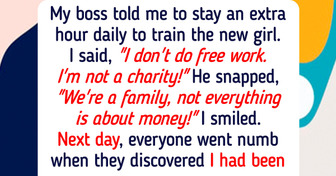
My MIL Stole My Daughter’s $50K College Fund—The Consequences Were Immediate

My In-Laws Forced Me to Leave My Vacation Early—They Crossed Every Line

I Refuse to Let My Sister Hijack My Pregnancy Announcement

My Parents Told Me I Didn’t Deserve an Inheritance—I Made Them Regret
